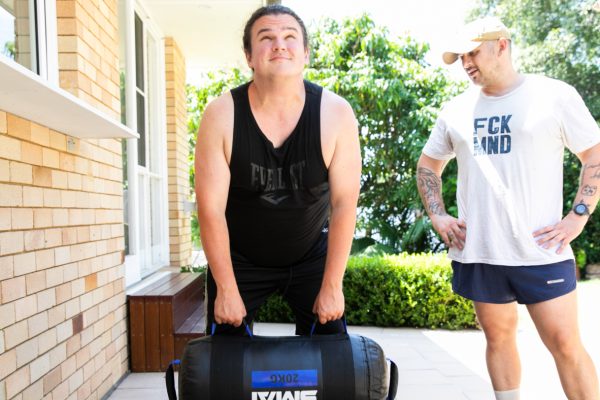
How to practice speech and language skills during play
By Kylie Martin
“Mummy, daddy come and play.”
You know you should say yes to that sweet little face BUT there are clothes to put away, stuff that needs to be filed and you’d really like to drink your coffee while it’s still hot.
Let’s be honest play can be really boring for adults. Independent play is an important skill for children to learn. It helps them to practice problem solving skills, develops their imagination, fosters an understanding of their own likes and play preferences and gives them opportunity to explore learning without structures or boundaries that others may bring to play.
But interactive play is such a beautiful opportunity for us to build relationship, model speech and language and practice social skills with our kids as well as develop cognitive and motor skills.
In her research, Dr Mary Helen Immordino-Yang, a neuroscientist, has found that we shift from apathy to engagement when tasks have personal relevance and there is a level of emotional connection to the task we are involved in.
So what skill could you practice in play? What parenting strategy do you want to develop?
Perhaps you would like to practice commenting during play more than questioning.
Commenting
Commenting shows your child that you are noticing what they are doing and allows the child to lead the interaction. It allows them to take you into their world, into their imaginations and show you what is topical, important and relevant to them at this point in their lives.
Your current interaction when playing with a puzzle might go something like this:
Adult “What’s this one?
Child “It’s a cow”
Adult “ What does a cow say?”
Child “Moo”
Adults “Where does the cow go?”
Child “Here”
Commenting may allow the conversation to flow like this:
Adult “You have the cow”
Child “Cows say moo and they make milk”
Adult “Cows do make milk”
Child “I had milk in my breakfast”
Adult “You had cornflakes and milk today”
Child “And I had sandwiches for lunch. At kindy Jacob had sandwiches and they had ham on them. I could have ham”
Questions
Maybe you’d like to try asking open ended questions rather than closed questions. Closed questions allow for a yes/no or specific answer. Open ended questions not only allow for more interaction between you and your child, but asking a variety of open question forms, fosters development in your child’s comprehension, story telling or narrative skills and in their problem solving skills.
By the time a child starts school they should be able to understand and respond to all of the “Wh” type questions (who, what, where, when, why, how, what if, how do) “Will we build a tower?” could become “What should we build?” or “How will our tower look?” “Is he sad” could become “How do you know he is sad?” “Are these different” could be “What makes these different.”
Mindful
You could focus on being mindful. Mindfulness has been the “buzz term” for a while now and essentially it is being focussed on the present moment. The use of mindfulness strategies at work, at home and in relationships has been found to lower stress, improve productivity and provide a better sense of connection and over-all well being. How often have you found yourself mentally ticking off the to-do list or checking your phone while on the floor “playing” with your child. Sometimes your child just needs you to be near them while they play, sometimes though, they need or desire you to be fully engaged with them.
Focussing on your senses is a good way to bring your attention to the task at hand and move your brain away from all the distractions. Imagine sitting at the table with your child and a bucket of playdough. Roll the playdough into balls and feel how smooth it becomes as you keep rolling it. Add some more food dye to homemade play dough and watch how the colour changes as you knead it in. Talk about the swirls and areas of darker colour vs lighter colour. You could add a drop of essential oil to the playdough and enjoy the smell. As you experience the different sensory characteristics of the playdough, talk about them together and enjoy sharing the moment!
If you can find a reason for play to be meaningful for you, it is likely that you will enjoy the experience more and not want to hide in the pantry with your coffee when that little voice asks “mummy, daddy, will you play with me?”
Kylie Martin is a speech pathologist at Chatter-boxes Speech Pathology Services. For advice or information on speech and language development, play, feeding or social communication visit www.chatter-boxes.com.au







